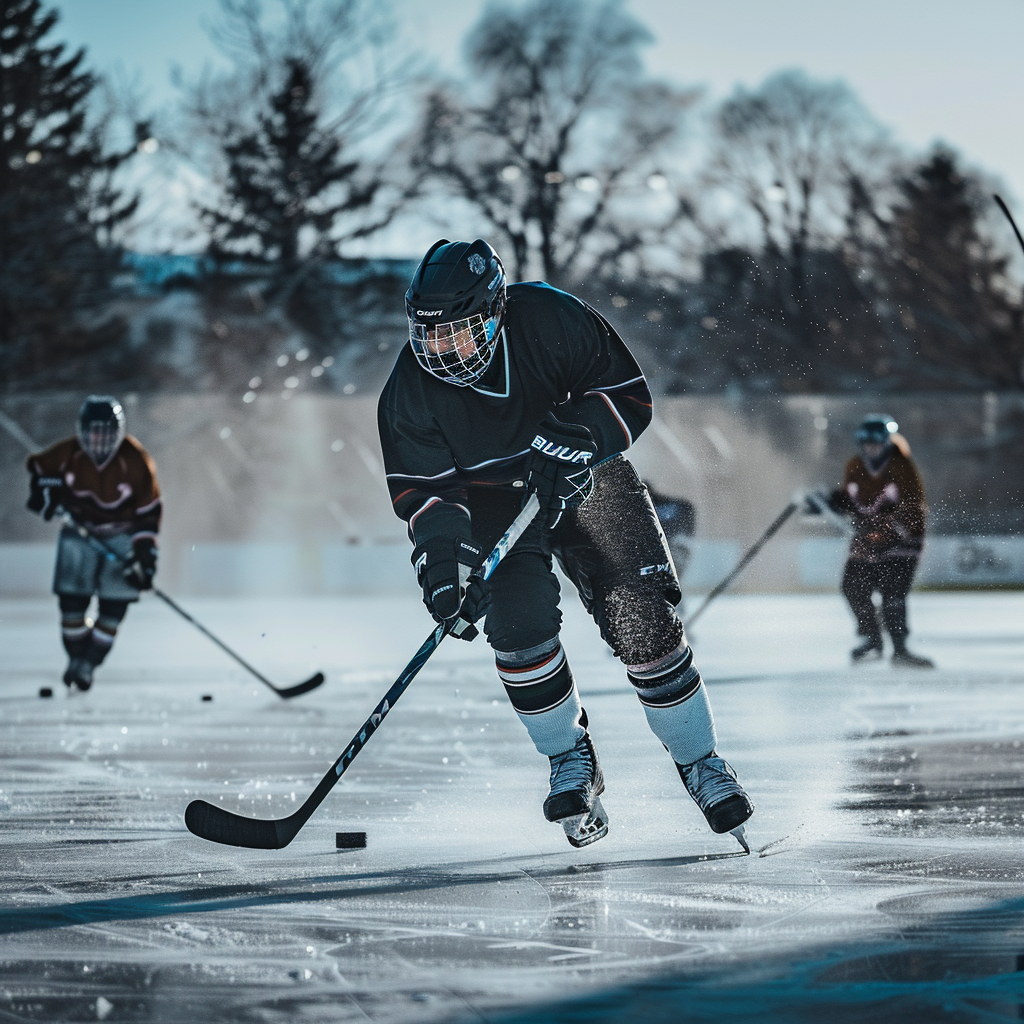Etiquette and discipline in hockey are fundamental to the integrity and spirit of the sport. They ensure that the game is played fairly and safely, maintaining respect among players, officials, and fans. This article explores the essential aspects of etiquette and sports discipline in hockey, including on-ice behavior, the role of team captains, the importance of fair play, and the disciplinary measures enforced to uphold the sport’s standards.
Key Rules of Conduct on Ice
Hockey has established key etiquette rules that players are expected to follow. These rules promote respect and sportsmanship, ensuring that the game is competitive yet fair. One of the primary rules is respect for opponents. This means playing hard but clean, avoiding unnecessary roughness, and acknowledging good plays by the opposing team.
Respect for referees and officials is another crucial aspect. Referees are responsible for enforcing the rules and maintaining order during the game. Players must accept their decisions without argument, even if they disagree. This respect extends to communication, where players are expected to address officials courteously and avoid confrontational behavior.
Respect for fans is also vital. Players are role models and must conduct themselves in ways that reflect well on the sport. This includes not engaging in taunts or obscene gestures and appreciating the support of the fans, regardless of their team allegiance. Players often show this respect through gestures like acknowledging cheers or participating in fan interactions post-game.
Sportsmanship during gameplay involves adhering to unwritten rules that enhance the integrity of the game. For example, players should avoid “showboating” after scoring and should help opponents who have fallen or been injured. These actions foster a positive environment on the ice and contribute to the overall enjoyment of the game for everyone involved.
Role of Captains and Team Leaders
Captains and team leaders play a pivotal role in maintaining discipline on the ice. They are the liaison between the players and the referees, often communicating decisions and mediating disputes. Captains are expected to exemplify the highest standards of sportsmanship and lead by example.
The leadership of captains in regulating emotions and behavior is crucial. In the heat of the game, tempers can flare, and emotions can run high. Effective captains can calm their teammates, prevent unnecessary penalties, and keep the focus on playing the game. Their ability to manage these situations can significantly influence the outcome of a game.
Captains also play a key role in promoting a positive team culture. They encourage cooperation, unity, and mutual respect among teammates. By setting a standard for behavior and work ethic, captains help create an environment where all players are motivated to perform at their best while respecting the game and its participants.
Moreover, team leaders are responsible for guiding younger or less experienced players. They mentor them on the importance of discipline, both on and off the ice. This mentorship helps instill the values of the sport in new players, ensuring the continuity of these principles across generations.
Sportsmanship and Fair Play
Sportsmanship and fair play are cornerstones of hockey. They embody the ethical and moral principles that govern the behavior of players, ensuring the game is played with integrity. Fair play involves following the rules, playing honestly, and showing respect to all participants.
- Examples of fair play on the ice include players admitting to a mistake, such as touching the puck with a high stick or acknowledging a legitimate penalty. These actions demonstrate honesty and a commitment to the spirit of the game, beyond the mere pursuit of victory.
- Fair play also extends to how players interact with each other. Helping an opponent up after a fall, checking on the welfare of a player who is hurt, and congratulating the other team after a hard-fought game are all examples of good sportsmanship. These behaviors foster mutual respect and camaraderie, even among fierce competitors.
- The significance of fair play is evident in how it influences the culture of hockey. Players who consistently demonstrate sportsmanship become role models, inspiring others to uphold these values. This positive influence extends to fans, who appreciate and celebrate fair play, enhancing the overall atmosphere of the sport.
Discipline and Penalties
Discipline is enforced in hockey through a well-defined system of penalties. These penalties are designed to deter inappropriate behavior and ensure that the game is played fairly and safely. Infractions such as tripping, high-sticking, and unsportsmanlike conduct result in penalties that can affect the outcome of the game.
Referees and officials play a critical role in maintaining discipline. They are tasked with identifying and penalizing rule violations. Their decisions are based on the rulebook and their judgment, ensuring that the game remains under control. The authority of referees must be respected by all players and coaches to maintain order on the ice.
Penalties can vary in severity, ranging from minor penalties, which result in a player being sent to the penalty box for two minutes, to major penalties, which can lead to more extended time off the ice and even game misconducts. Severe infractions, such as fighting or dangerous hits, may result in suspensions or fines, emphasizing the importance of discipline.
Disciplinary measures are essential for protecting players and preserving the sport’s integrity. They help prevent injuries and promote a safer playing environment. By adhering to the rules and respecting the referees, players contribute to a fair and enjoyable game for everyone involved.
Also, we advise you to read our other article, where we talked about tactical approaches to betting on hockey.
FAQ
Respect for opponents means playing fairly, avoiding unnecessary roughness, and acknowledging their good plays during the game.
Respect for referees is crucial as they enforce rules and maintain order. Players must accept their decisions without argument and communicate with them courteously.
Players demonstrate respect for fans by refraining from taunts or gestures, acknowledging fan support positively, and engaging with fans in a respectful manner after the game.

